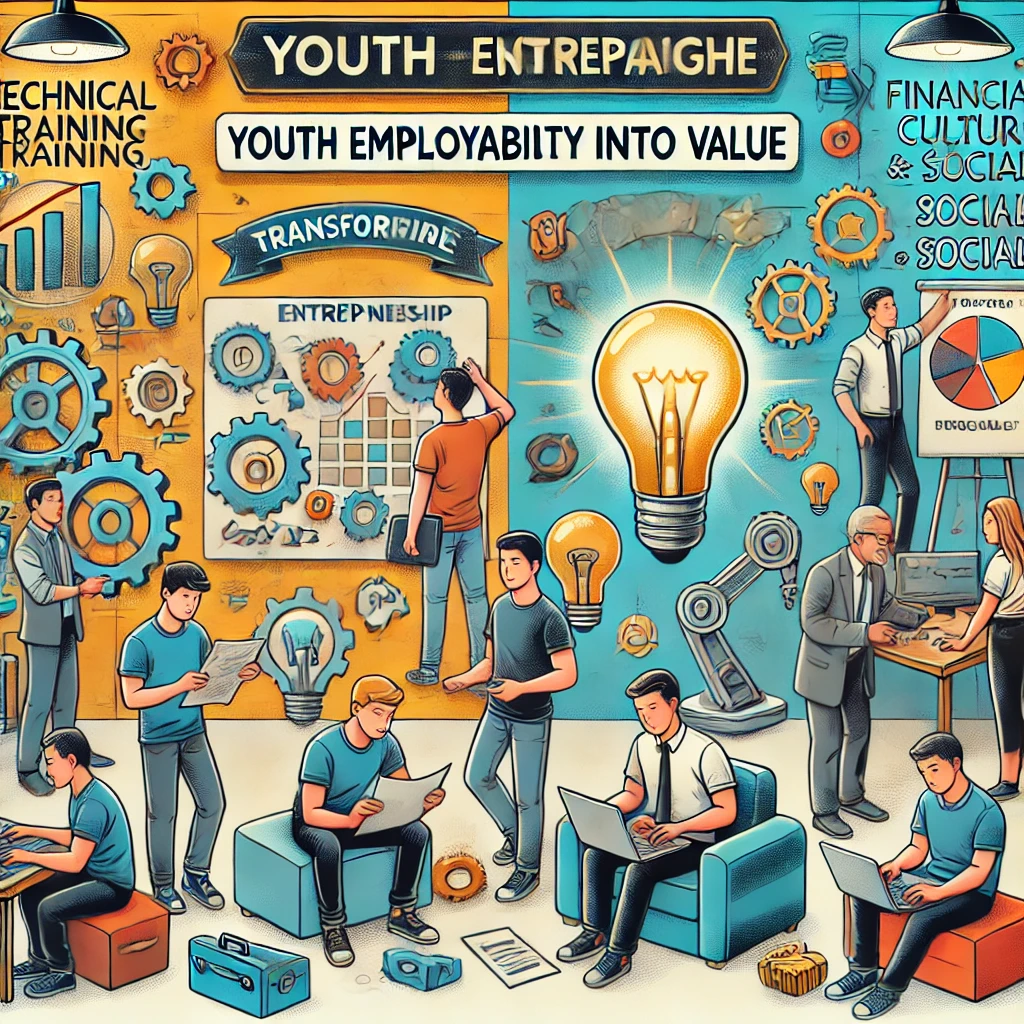
PULSE Entrepreneurship
PULSE aims to address a significant challenge in youth employability within the Arab Maghreb Countries AMC region: the skills gaps and mismatches between labor market demands and training offerings. By empowering both trainers and students to surpass mere technical training, the project seeks to equip them with the skills and competencies required to thrive in an evolving world.
While technical skills are critical for performing job-specific tasks, it’s the soft skills that truly set individuals apart, enabling them to excel in their careers, collaborate effectively, and adapt to an ever-changing workplace. The ambition of this project is to translate the concept of entrepreneurship as an attitude, which, in the words of the EntreComp framework, is: “Entrepreneurship is the capacity to act upon opportunities and ideas, and transform them into value for others. The value that is created can be financial, cultural, or social.”
The idea of PULSE is to extrapolate innovative teaching methodologies that already work in leading European VET centers in Spain, Greece, and France to develop entrepreneurial mindsets, leadership, teamwork, creativity and innovation, among others, in VET technical students, so that they are better prepared for the future job market.
General Objective
Within this context the general objective of the project is:
“To strengthen the capacity of vocational education and training (VET) centers in Tunisia, Morocco, and Libya to foster entrepreneurial spirit among both educators and learners, utilizing innovative pedagogical methods and digital resources to enhance employability and entrepreneurial skills within the region”.
To build the capacity of VET providers in Tunisia, Libya and Morocco, it is necessary to create the tools, programs, and learning materials that will enable them to effectively deliver quality training. Consider the following:
- Develop training tools and resources that are relevant to the local context (Needs analysis and WP2 peer review conclusions), including culturally appropriate learning materials and methods (AMC partners lead their training pathways, creating an individual action plan in WP2)
- Provide access to professional development opportunities for VET providers, including workshops, mentoring, and coaching (Capacity Building program in WP3)
- Create training programs that align with industry needs and demands, to ensure that VET providers are delivering relevant and up-to-date training (Capacity Building program is based on the recommendations on the needs analysis from WP2)
- Implement a monitoring and evaluation framework to track progress and identify areas for improvement. (A Quality Assurance Plan and Strategy (WP1) will be developed at the very beginning to monitor and evaluate the project progress).
- Foster partnerships and collaboration between VET providers and industry stakeholders, to ensure that training programs are meeting industry needs and standards:
- i) A well structured approach on stakeholders mapping and engagement strategy will be established since the very beginning (WP, T5.3),
- ii) Consultation workshops and roundtables will be organized at local level in AMC countries to ensure the capacity building, strategies to promote entrepreneurship and the curricula is being built in the right direction, attending national strategies and and labor market demands.
- iii) Knowledge exchange activities and international connections will be foster throughout the project between partners, EU-AMC entrepreneurs and mentors, and study visits to partners’ stakeholders.
- iv) Finally, a specific sustainability plans for the project will be built, gathering the MoUs and agreements to continue the collaboration, exploring possible spin-offs of the project and to ensure further cooperation.
Communicate with us for participation and invitation to our events: INVITATION HERE